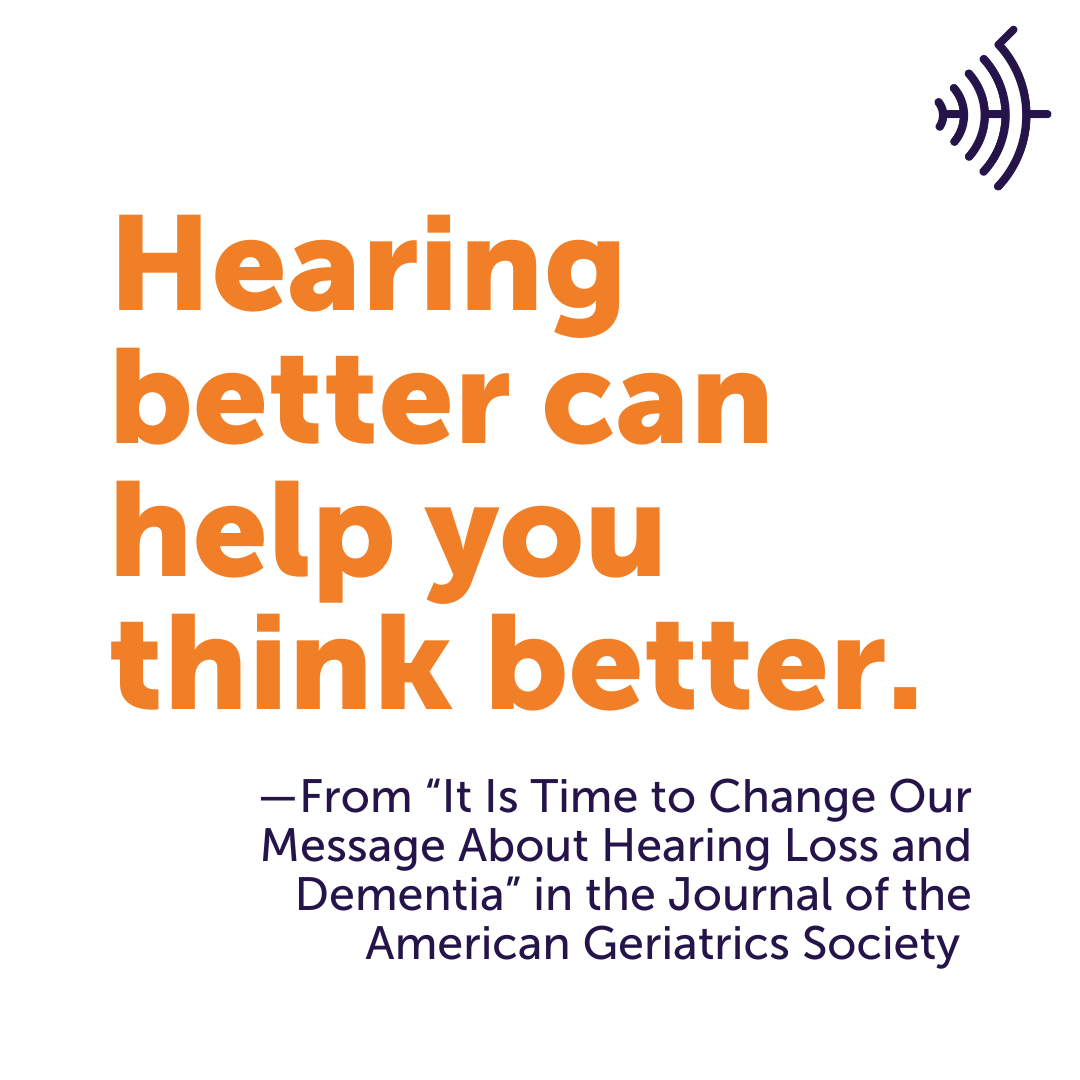Ver pagina en: English | Español
Hearing Is About Your Brain
We hear not only with our ears, but also—and importantly—with our brain. The tiny sensory cells in our inner ear capture sound waves and translate them into signals to be interpreted by the brain.
You know when you’re learning a new language and your brain gets exhausted trying to fill in the blanks? That’s how it is with hearing loss. Even a mild loss in hearing can drain the brain as it tries to figure out what it missed. Our memory and ability to learn and complete mental tasks is affected. And brain regions related to hearing actually shrink from lack of stimulation—if you don’t use it, you lose it.
Research shows up to a five times greater risk for dementia for those with untreated hearing loss than for those with typical hearing. According to a 2020 study in the Lancet, untreated hearing loss is the single risk factor that accounts for the greatest number of dementia cases.
It’s not known exactly why there is an association between untreated hearing loss and cognitive issues, with researchers investigating several theories, summarized in a 2023 Journal of the American Geriatric Society study. Treating hearing loss with hearing devices appears to reduce that risk to that of people with typical hearing, according to a 2023 Lancet Public Health report.
The links between hearing and the brain continue to be investigated by researchers. But we do know that treating hearing loss can help people communicate better and feel connected to others.
(Read more about the connection between hearing health and brain health.)
Noise Affects Your Heart
We’ve all had the experience of being startled by sudden loud noises. Our Neanderthal cousins needed this fight-or-flight response to stay alive, but for us modern folk, it just stresses the body.
We can shut our eyes but we can’t shut our ears. A noise, even at a low level and especially if it’s not continuous, can make the body go into alert mode, releasing a cascade of stress hormones and raising blood pressure. Research published in the European Heart Journal in 2020 and elsewhere has shown that noise pollution elevates the risk for heart disease.
The relationship goes the other way, too. Poor heart health has long been associated with reduced hearing ability, according to the Hearing Journal.
But remember sound also has the power to heal—just as a sudden noise can make your heart jump, a soothing sound like your favorite music can help bring it back down. It may even help boost memory, according to a new study from Northeastern.
If You Can’t Fully Hear, Your Mental Health Can Suffer
COVID-19 has shown all of us how much we need people and social connections. We need to talk to people. But when we only catch every third word or miss out on important instructions, conversations and jokes, we begin to feel disconnected.
We may start to avoid social events or situations we know will be noisy. It’s no wonder that untreated hearing loss can lead to feelings of depression and isolation. And being socially isolated can also increase the risk for cognitive decline.


